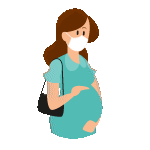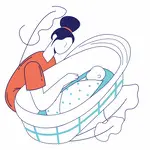Congratulations! Now that your baby is home, it is time for some family bonding and many cuddles. We know you can’t wait to be with your baby and watch in wonder as he/she flashes their accidental smile or yawns with their teeny tiny mouth. If you have chosen to breastfeed your baby, that too makes for a great bonding experience between the mother and the baby. During pregnancy, your doctor must have shared a list of foods to not eat so as to keep yourself and your growing baby healthy. As much as you would like to go back to your favourite foods, you must make note of a few things that you must avoid eating when you are lactating. Lactation is a period when you should focus on having nutritious and healthy food that nourishes your body, helps recover from childbirth, provides adequate nutrients to mother and baby and also helps increase the production of milk in the body. The foods which are recommended to be avoided during this time are some that may reduce milk supply, cause indigestion, cause allergy or rashes or result in some unpleasant side effects in the mother or the baby.
So let’s take a look at a complete list of foods to be avoided by lactating mothers:
Fish high in mercury
It is recommended to stay away from mercury rich fish such as shark, swordfish, king mackerel, marlin and others as these have high amounts of mercury. Apart from the risk of mercury poisoning in infants, higher amounts of the same can cause impairments and delayed developments like those of cognition skills, speech, motor skill etc. Instead you can choose low-mercury fish for sources of protein and Omega-3 fatty acid.
Alcohol
As in pregnancy, alcohol is best avoided during breastfeeding. Apart from causing neural problems and delayed development in the baby, it can lead to other complications as well. How much alcohol is transmitted to the baby will depend on how much you had to drink, but it’s best to avoid it during this time. However, if you are using pumps or not feeding through the day, you can have an occasional drink, after consulting with your doctor on the gap between feedings and what window is safe for having a drink.
Caffeine and chocolate
Caffeine and chocolate, when consumed in higher quantities can end up in your breast milk. The baby’s intestinal and digestive system is still developing and they cannot break down caffeine or chocolate as easily. Thus this will accumulate in their body over time and can cause irritability, restlessness, loss of sleep or even stomach problems.
Citrus fruits
Although they are great sources of Vitamin C, the baby’s stomach lining is not built to take in much of this acidic component and may cause irritation or indigestion. While having one fruit a day is fine, it’s best to consult your doctor before increasing or stopping any food.
Cabbage, cauliflower, radish & other gaseous foods
Some foods cause bloating and gas even in the mother, and when you are breastfeeding, these can very well be passed on to the baby. If you are not sure about something, it’s best to ask the elders or your doctor. If it causes gas in adults, it will likely cause gas and colic in the baby.
Peppermint, sage & other herbs
Although the amount of herbs we use or eat even in a week is negligible, sometimes herbs like peppermint and sage can reduce the milk supply in lactating mothers. If you absolutely must have some herbs, it’s best to reduce the quantity, consult the doctor and also keep an eye on the milk supply and whether it is affected.
Garlic
Too much garlic can be difficult to digest even when transmitted through breast milk. Moreover, it’s a food that increases body heat and thus if you are in warmer climates, this can cause discomfort to the baby. However, the amount we use in daily cooking should be alright, unless your baby doesn’t like the smell of garlic - yes, the smell is transmitted to the milk as well!
Dairy products
Many dairy products are recommended or many mothers do have dairy products in some form or the other. However, the goal is to introduce each product separately as daily or lactose can cause allergies or indigestion in babies.
Eggs & Shellfish
Eggs and crustaceans are common causes of allergies in babies and shouldn’t be consumed before consulting a doctor. If you do decide to eat eggs or shellfish, it’s best to have it on a day when other possible allergens are not included, to be sure that your baby is not allergic.
Nuts, soy and other allergens
Babies can be allergic to the foods that usually cause allergies in adults. If there are any allergies in the family, it would be best to avoid those foods for a while. Additionally, nuts and soy sometimes cause problems when ingested by the baby through breast milk so it’s best to ask your doctor before including these in your diet.
Spicy and oily food
As in pregnancy, too many spices or too much oil can cause heartburn, indigestion, gas and other issues. When consumed during the lactation period, these can have the same effects on the baby and your baby may end up being gassy or in discomfort.
Highly processed and junk foods
Processed foods and junk foods are very high in calories but seldom provide any nutritional values. These have added sugars, high quantities of unhealthy fats and practically no healthy nutrients. Apart from causing gas, indigestion and other intestinal problems, these will add no value to the breast milk and thus not be helpful in the baby’s growth and development. Moreover, some people suggest that the taste or foods preferred or eaten by the mother in the breastfeeding stage are likely to influence the taste buds of the child, as they grow up. So it’s best to inculcate healthy eating habits even before they actually start eating.
While this may seem like a lot, it is actually very easy to follow a healthy, balanced and nutritious diet during this time. Traditional foods contain many more vitamins and nutrients as compared to fast food - so you can consult your doctor to get a complete meal plan with your preferred traditional foods and follow it to ensure a happy and healthy lactation period, for both mother and baby!
FAQ's
Q. Can I eat fish while breastfeeding?
Ans.Yes, but choose low-mercury fish like salmon, sardines, and trout. Avoid high-mercury fish such as shark, swordfish, and king mackerel, as mercury can harm your baby’s brain and nervous system development. Always ensure fish is well-cooked to prevent foodborne illnesses.
Q. Is alcohol safe during breastfeeding?
Ans.It’s best to avoid alcohol entirely while breastfeeding, as it can pass into breast milk and affect your baby’s development. If you choose to drink, consult your doctor about safe timing between drinking and feeding to reduce exposure risk.
Q. Can I have coffee or chocolate when nursing?
Ans.Small amounts are fine, but excess caffeine and chocolate can pass into breast milk, causing irritability, restlessness, or sleep issues in your baby. Limit coffee to 1–2 cups daily and monitor your baby’s reaction after consumption.
Q. Why should citrus fruits be limited during breastfeeding?
Ans.Citrus fruits are acidic and may irritate your baby’s immature digestive system, causing diaper rash or fussiness. Moderate consumption is fine, but avoid overindulgence. Opt for other vitamin C sources like papaya, melon, or mango if citrus seems to bother your baby.
Q. Do cabbage, cauliflower, and radish cause gas in babies?
Ans.Yes, these vegetables can produce gas, which may pass to your baby through breast milk, leading to discomfort and colic. If you notice fussiness after eating them, reduce intake and replace with gentler vegetables like carrots or zucchini.
Q. Can herbs like peppermint and sage affect milk supply?
Ans.Yes, peppermint, sage, and some other herbs may reduce milk production in certain mothers. If you consume these herbs, monitor your milk supply closely. It’s best to limit them or consult your doctor before including them regularly in your diet.
Q. Is garlic safe while breastfeeding?
Ans.In small cooking amounts, garlic is generally safe. However, too much can alter the taste of breast milk, which some babies dislike, and may cause digestion issues. If your baby shows fussiness after feeding, consider reducing garlic in your meals.
Q. Are dairy products safe for nursing mothers?
Ans.Dairy is safe for many, but some babies may be sensitive to cow’s milk protein, causing colic, rash, or diarrhea. Introduce dairy gradually and monitor your baby’s reaction. If issues arise, try lactose-free options or consult your pediatrician.
Q. Should I avoid eggs and shellfish while breastfeeding?
Ans.Eggs and shellfish can trigger allergies in some babies. Introduce them one at a time and watch for reactions such as rash, vomiting, or diarrhea. Avoid on days when introducing other potential allergens to identify the cause if symptoms occur.
Q. Why should processed and junk foods be avoided?
Ans.Processed foods are high in sugar, unhealthy fats, and additives, offering little nutritional value. They can cause gas, indigestion, and poor-quality breast milk nutrients. Eating wholesome, traditional foods ensures better nutrition for both mother and baby, supporting healthy growth and development.




















